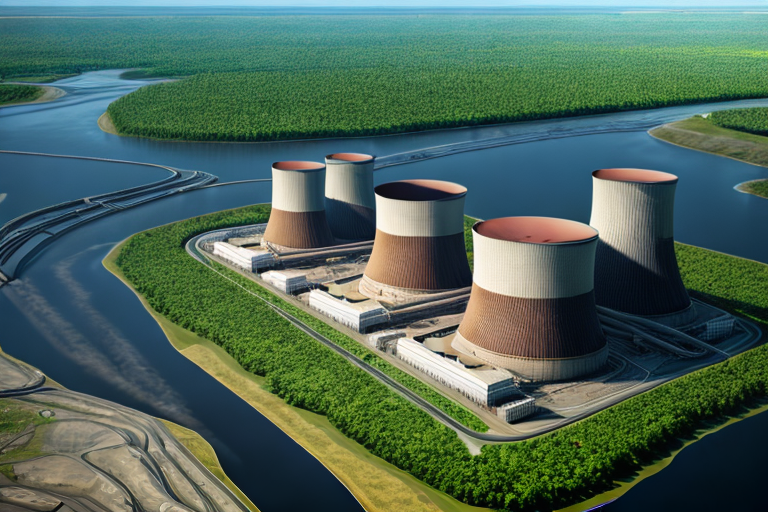
In today’s uncertain economic climate, it is crucial for businesses and brands to be prepared for the possibility of an economic collapse. While we cannot predict when or if such a collapse will occur, taking proactive steps to ensure financial stability is essential.
Building a strong foundation of financial resilience should be a priority.
This involves adopting a frugal lifestyle, reducing unnecessary expenses, and focusing on savings.
By living within our means and setting aside an emergency fund, we can better protect ourselves financially in case of a crisis. Exploring different sources of income and acquiring self-sufficiency skills are important considerations.
Click here to learn more Survival Tips from Pro Outdoor Survival
Impact of Economic Collapse
The financial recession caused by an economic downfall can result in a severe financial breakdown for individual’s and families. The economic turmoil that follows brings about a financial catastrophe, impacting various aspects of society.
Among the areas greatly affected is the housing market, with foreclosures becoming prevalent as homeowners struggle to make mortgage payments.
This leads to a surge in vacant properties, causing a decline in property values and a rise in homelessness rates.
Healthcare, education, and social services suffer greatly, with limited access to quality healthcare and reduced funding for vital programs. It is essential to prepare for such economic upheaval by diversifying investments, building an emergency fund, and being proactive in protecting one’s home and financial stability.

Prepare for Economic Collapse
In today’s uncertain economic climate, it is crucial for businesses and individual’s to be prepared for potential economic collapse. By taking proactive measures to ensure financial stability and resilience, we can navigate any challenges that may arise.
One key aspect of economic preparedness is maintaining a well-diversified investment portfolio.
By spreading our investments across different asset classes, such as stocks, bonds, and real estate, we can minimize the risk associated with a single sector.
Including precious metals like gold and silver in our portfolio can serve as a safeguard against inflation and offer stability during times of economic turbulence.
Another vital strategy for weathering an economic downturn is to reduce our reliance on debt.
Clearing high-interest debts, such as credit card balances and personal loans, allows for more disposable income to be utilized. By taking these proactive steps, we can better position ourselves for any potential economic collapse and mitigate its impact on our financial stability.
| Aspect of Economic Preparedness | Supporting Data |
|---|---|
| Well-Diversified Investment Portfolio | Spreading investments across different asset classes |
| Precious Metals in Portfolio | Gold and silver serve as a safeguard against inflation and offer stability |
| Reducing Reliance on Debt | Clearing high-interest debts allows for more disposable income |
Essential Supplies for Economic Collapse
In times of financial disruption, it is important to be prepared with essential supplies for resilience. While we cannot predict the circumstances of an economic collapse, having necessary items can help us navigate through challenging times.
First and foremost, it is crucial to stockpile non-perishable food items with a long shelf life and essential nutrients.
Opt for canned goods, dried foods, and freeze-dried meals for a balanced diet.
It is also important to prioritize access to clean and safe water, with at least one gallon per person per day recommended. Consider investing in water purification systems or filters.
It is advisable to stock up on basic first aid items, prescription medications, and a well-equipped first aid kit as access to medical supplies may become limited. don’t forget personal hygiene essentials such as toilet paper, soap, and toothpaste.
Financial Resilience During Economic Downturn
During an economic downturn, businesses and individual’s need to adopt a proactive approach to ensure financial resilience. It is not enough to simply stockpile supplies for potential aftermath; understanding the impact, predictions, causes, effects, timeline, indicators, warning signs, prevention, and solutions of economic instability is crucial.
To navigate through these challenging times and ensure long-term stability, it is essential to build a strong emergency fund, diversify income streams, manage expenses, invest in skills and education, and seek financial advice.
Taking a comprehensive approach will better equip individual’s and businesses to withstand economic downturns.
Financial Resilience
- A proactive approach during an economic downturn helps businesses and individual’s maintain financial stability.
- Understanding the impact, predictions, causes, effects, timeline, indicators, warning signs, prevention, and solutions of economic instability is crucial for navigating through challenging times.
- Building a strong emergency fund provides a safety net during economic downturns.
- Diversifying income streams helps mitigate the risk of relying on a single source of income.
Recognizing Warning Signs of Economic Collapse
During times of economic uncertainty, it is crucial to be able to recognize the warning signs of an impending financial crisis. By being able to identify these indicators, individual’s and businesses can take necessary steps to ensure financial resilience and develop a contingency plan to protect themselves from potential economic devastation.
It is important to have survival strategies, along with tools and resources, in order to navigate through such challenging times.
Having a response plan and recovery plan in place will help in minimizing the impact and ensuring swift relief and assistance.
Manage Economic Collapse Crisis
Strategies play a crucial role in managing an economic collapse crisis. These strategies involve equipping individual’s and communities with the necessary skills and knowledge to overcome challenging circumstances.
Learning self-sufficiency skills, such as food cultivation, water purification, and sustainable energy generation, are important survival strategies.
Creating strong social networks and building community resilience groups can also prove beneficial during times of economic uncertainty.
Financial resilience is another key factor in navigating an economic collapse crisis. By enhancing their financial literacy, developing a budget and savings plan, and diversifying their income streams, individual’s can build a strong financial foundation that can withstand shocks and downturns.
Having insurance coverage and establishing a solid credit history contribute to financial stability in challenging times.
To effectively minimize the impact of an economic collapse crisis, a comprehensive approach is required.
By adopting these strategies and enhancing financial resilience, individual’s can better manage and overcome economic challenges.
| Strategies | Financial Resilience |
|---|---|
| Learning self-sufficiency skills | Enhancing financial literacy |
| Building community resilience groups | Developing a budget and savings plan |
| Creating strong social networks | Diversifying income streams |
| Having insurance coverage |
Long Term Stability Tips to Prevent Economic Collapse
In today’s uncertain economic climate, it is crucial to prioritize long-term stability and take proactive measures to ensure financial resilience. By implementing effective strategies and adopting a resilient mindset, individual’s and businesses can safeguard their economic well-being.
Exploring various survival strategies can provide an added layer of security.
One important approach is to build a survival kit, which includes essential supplies and resources such as food, water, medical supplies, and tools.
Taking courses or training in financial resilience can also enhance your knowledge and skills in navigating challenging economic conditions. Investing in equipment for financial resilience can help you better handle potential crises.
By being prepared and proactive, you can significantly reduce the risk of financial instability affecting your long-term stability.
Role of Government in Economic Collapse Recovery
The role of the government in economic collapse recovery goes beyond financial assistance. It involves implementing effective policies and regulations to prevent future collapses and stimulate economic growth.
The government can support individual’s and businesses while also promoting economic resilience through strategic investments in infrastructure projects and incentives for innovation and entrepreneurship.
Prioritizing transparency and accountability creates an environment conducive to the recovery process and ensures long-term stability.
During times of economic turmoil, proactive measures by the government are essential in fulfilling its vital role in the recovery process.
Supporting Points for Government Role in Economic Collapse Recovery
- The governments financial assistance is crucial in providing immediate relief to individual’s and businesses affected by the economic collapse.
- Implementing effective policies and regulations helps prevent future collapses by addressing systemic issues and promoting stability in the economy.
- Strategic investments in infrastructure projects create job opportunities and stimulate economic growth, leading to a faster recovery.
- Incentives for innovation and entrepreneurship encourage businesses to adapt and thrive, contributing to long-term economic resilience.
Nuclear Disaster Mitigation Strategies Top Tips
Surviving Power Grid Failures Essential Tips






















